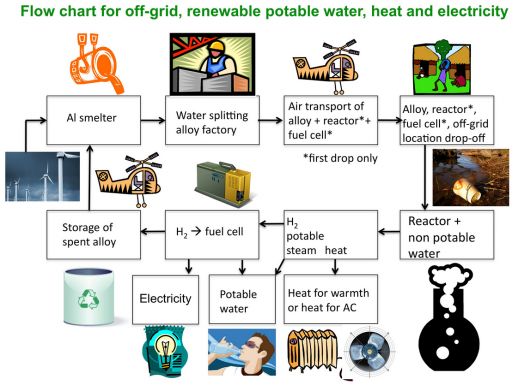Portable tech might provide drinking water, power to villages
May 4, 2011
An aluminum alloy that could be used in a new type of mobile technology to convert non-potable water into drinking water while also extracting hydrogen to generate electricity has been developed by researchers at Purdue University.
The alloy contains aluminum, gallium, indium, and tin. Immersing the alloy in freshwater or saltwater causes a spontaneous reaction, splitting the water into hydrogen and oxygen molecules. The hydrogen can then be fed to a fuel cell to generate electricity, producing water in the form of steam as a byproduct. The steam would kill any bacteria contained in the water and condense to purified water, the researchers said.
Because the technology works with saltwater, it might have marine applications, such as powering boats and robotic underwater vehicles. The technology also might be used to desalinate water at a cost of $1 per gallon, with electricity generated for about 35 cents per kilowatt hour of energy.
Once a prototype is built, this could provide a new portable technology for regions that aren’t connected to a power grid, such as villages in Africa and other remote areas, the researchers suggested.

